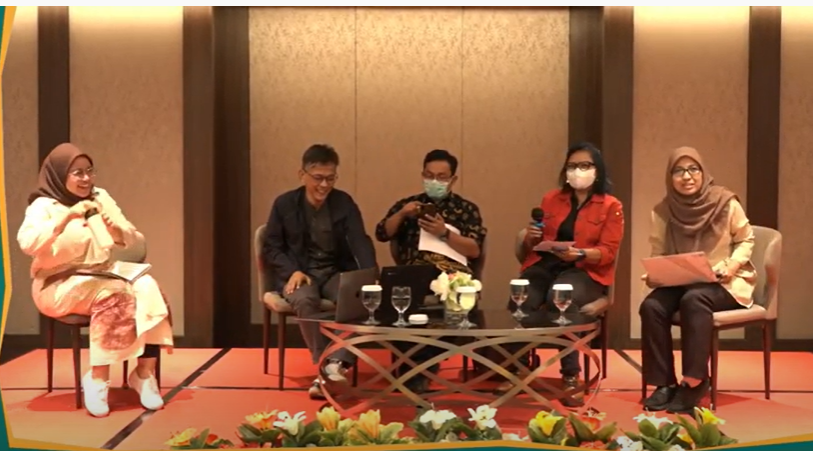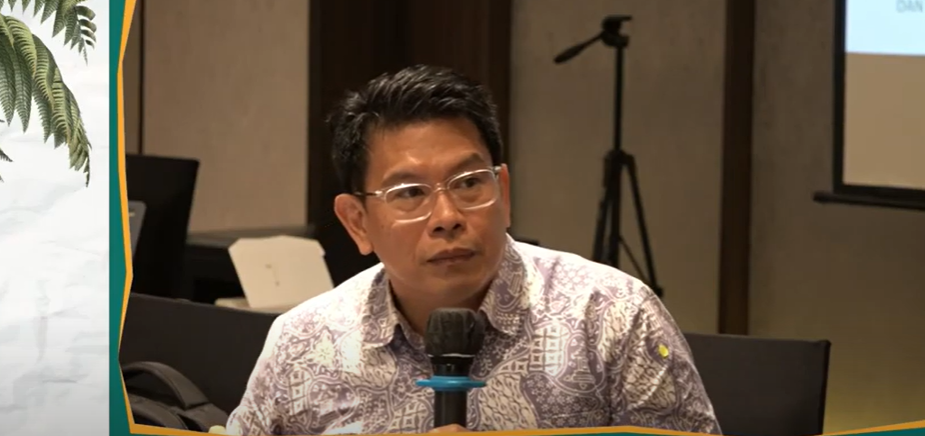Climate justice is the most urgent issue of a generation. Especially for those who have a mission to free Indonesia from the threat of climate crisis and ecological crisis in a democratic political order based on human rights principles. Torry Kuswardono, Executive Director of the PIKUL Foundation, emphasized the importance of understanding climate justice that written in the Paris Agreement, the Intergovernmental Panel on Climate Change (IPCC), the Sixth Assessment Report (AR6), Working Group II assesses the impacts of climate change, looking at ecosystems, biodiversity, and human rights. Torry explained that the sixth assessment report (AR 6) had expanded attention to vulnerability, response, power, participation, and climate justice inequality.
“It also explains the view that a just society will adapt successfully. On the other hand, successful adaptation will produce a just society,” said Torry in a discussion held by the Madani Foundation, Walhi, Kemitraan, Pikul, and the Institute for Essential Services Reform (IESR) on Monday (3/10/2022).
Torry said that the issue of climate-resilient development needs to be considered to reduce inequality, synergize adaptation and mitigation and provide benefits for the poor and vulnerable groups. Climate justice has been conceptualized in multiple ways, composed of three overarching tenets (procedural justice, distributive justice, and solid but flexible institutions).
“There are at least four things that must be done, namely recognizing agencies that represent vulnerable groups, there needs to be procedures for vulnerable groups to speak up and solutions and distribute justice,” said Torry.
Torry stated that distributive justice has the principle that the more vulnerable parties should get more justice. To implement climate justice, at least Indonesia must have strong and flexible institutions. Meanwhile, Bivitri Susanti, Founder and Senior Researcher of the Center for Indonesian Law and Policy Studies (PSHK) emphasized that every party, including the community, has an essential role in climate justice, so grassroots and youth participation in discussions is significant.
“Three things must be highlighted (for implementing climate justice in Indonesia, ed), namely political decision-making, the judiciary, and civil society. We need to involve more civil society so they can also understand the context of climate change,” said Bivitri.

Climate change will harm the people of Indonesia, especially coastal communities. Parid Ridwanuddin, Coastal and Marine Campaign Manager, Walhi, explained that the annual tidal flood will threaten a total of 199 coastal cities in Indonesia in 2050. In addition, around 118,000 hectares of the area will be inundated by seawater, 23 million residents will be affected, and losses are estimated at Rp1,576 trillion.
“We also need to realize that fishermen can only go to sea for six months in one year. Every year on average, 100 fishermen are lost/died at sea due to fishing during bad weather,” explained Parid.
Climate change, Parid continued, also has an impact on increasing temperatures, which makes fish move from the tropics. Thus, this condition can reduce the income of traditional fishermen. Reflecting on various climate changes and the role of society, Parid emphasized the importance of the Climate Change Bill as a way to promote climate justice in Indonesia.
“This bill must become a priority for the civil society movement in Indonesia and invite international networks,” said Parid.
The Executive Director of the Institute for Essential Services Reform (IESR), Fabby Tumiwa, explained that the impact of the worsening climate is increasingly being felt today. Based on the Indonesian Disaster Information Data (DIBI)-BNPB for 2005-2017, disaster events in Indonesia are more related to hydrometeorology. In 2016, there were 2,287 hydrometeorological disasters, while 26 geological disasters occurred. In 2017, there were 2,139 hydrometeorological disasters and 18 geological disasters.
“This is an important context; who pays for the impact of this incident? It has also been related to tax justice reform. For example, those who produce more emissions should be charged more because of the climate crisis,” said Fabby.

